- Home
- Harlan Ellison
Deathbird Stories Page 2
Deathbird Stories Read online
Page 2
She dressed in an argyle sweater vest in shades of dark purple, and a pair of fitted khaki gabardine trousers. She had to go out, to walk around. To do what? To think about other things. As she pulled on the Fred Braun chunky heels, she idly wondered if that heavy silver bracelet was still in the window of Georg Jensen’s. In the elevator, the young man from the window across the courtyard stared at her. Beth felt her body begin to tremble again. She went deep into the corner of the box when he entered behind her.
Between the fifth and fourth floors, he hit the off switch and the elevator jerked to a halt.
Beth stared at him and he smiled innocently.
“Hi. My name’s Gleeson, Ray Gleeson, I’m in 714.”
She wanted to demand he turn the elevator back on, by what right did he presume to do such a thing, what did he mean by this, turn it on at once or suffer the consequences. That was what she wanted to do. Instead, from the same place she had heard the gibbering laughter the night before, she heard her voice, much smaller and much less possessed than she had trained it to be, saying, “Beth O’Neill, I live in 701.”
The thing about it, was that the elevator was stopped. And she was frightened. But he leaned against the paneled wall, very well dressed, shoes polished, hair combed and probably blown dry with a hand dryer, and he talked to her as if they were across a table at L’Argenteuil. “You just moved in, huh?”
“About two months ago.”
“Where did you go to school? Bennington or Sarah Lawrence?”
“Bennington. How did you know?”
He laughed, and it was a nice laugh. “I’m an editor at a religious book publisher; every year we get half a dozen Bennington, Sarah Lawrence, Smith girls. They come hopping in like grasshoppers, ready to revolutionize the publishing industry.”
“What’s wrong with that? You sound like you don’t care for them.”
“Oh, I love them, they’re marvelous. They think they know how to write better than the authors we publish. Had one darlin’ little item who was given galleys of three books to proof, and she rewrote all three. I think she’s working as a table-swabber in a Horn & Hardart’s now.”
She didn’t reply to that. She would have pegged him as an anti-feminist, ordinarily, if it had been anyone else speaking. But the eyes. There was something terribly familiar about his face. She was enjoying the conversation; she rather liked him.
“What’s the nearest big city to Bennington?”
“Albany, New York. About sixty miles.”
“How long does it take to drive there?”
“From Bennington? About an hour and a half.”
“Must be a nice drive, that Vermont country, really pretty. They went coed, I understand. How’s that working out?”
“I don’t know, really.”
“You don’t know?”
“It happened around the time I was graduating.”
“What did you major in?”
“I was a dance major, specializing in Labanotation. That’s the way you write choreography.”
“It’s all electives, I gather. You don’t have to take anything required, like sciences, for example.” He didn’t change tone as he said, “That was a terrible thing last night. I saw you watching. I guess a lot of us were watching. It was a really terrible thing.”
She nodded dumbly. Fear came back.
“I understand the cops got him. Some nut, they don’t even know why he killed her, or why he went charging into that bar. It was really an awful thing. I’d very much like to have dinner with you one night soon, if you’re not attached.”
“That would be all right.”
“Maybe Wednesday. There’s an Argentinian place I know. You might like it.”
“That would be all right.”
“Why don’t you turn on the elevator, and we can go,” he said, and smiled again. She did it, wondering why she had stopped the elevator in the first place.
On her third date with him, they had their first fight. It was at a party thrown by a director of television commercials. He lived on the ninth floor of their building. He had just done a series of spots for Sesame Street (the letters “U” for Underpass, “T” for Tunnel, lowercase “b” for boats, “c” for cars, the numbers 1 to 6 and the numbers 1 to 20; the words light and dark) and was celebrating his move from the arena of commercial tawdriness (and its attendant $75,000 a year) to the sweet fields of educational programming (and its accompanying descent into low-pay respectability). There was a logic in his joy Beth could not quite understand, and when she talked with him about it, in a far corner of the kitchen, his arguments didn’t seem to parse. But he seemed happy, and his girlfriend, a long-legged ex-model from Philadelphia, continued to drift to him and away from him, like some exquisite undersea plant, touching his hair and kissing his neck, murmuring words of pride and barely submerged sexuality. Beth found it bewildering, though the celebrants were all bright and lively.
In the living room, Ray was sitting on the arm of the sofa, hustling a stewardess named Luanne. Beth could tell he was hustling; he was trying to look casual. When he wasn’t hustling, he was always intense, about everything. She decided to ignore it, and wandered around the apartment, sipping at a Tanqueray and tonic.
There were framed prints of abstract shapes clipped from a calendar printed in Germany. They were in metal Bonniers frames.
In the dining room a huge door from a demolished building somewhere in the city had been handsomely stripped, teaked and refinished. It was now the dinner table.
A Lightolier fixture attached to the wall over the bed swung out, levered up and down, tipped, and its burnished globe-head revolved a full three hundred and sixty degrees.
She was standing in the bedroom, looking out the window, when she realized this had been one of the rooms in which light had gone on, gone off; one of the rooms that had contained a silent watcher at the death of Leona Ciarelli.
When she returned to the living room, she looked around more carefully. With only three or four exceptions–the stewardess, a young married couple from the second floor, a stockbroker from Hemphill, Noyes–everyone at the party had been a witness to the slaying.
“I’d like to go,” she told him.
“Why, aren’t you having a good time?” asked the stewardess, a mocking smile crossing her perfect little face.
“Like all Bennington ladies,” Ray said, answering for Beth, “she is enjoying herself most by not enjoying herself at all. It’s a trait of the anal retentive. Being here in someone else’s apartment, she can’t empty ashtrays or rewind the toilet paper roll so it doesn’t hang a tongue, and being tightassed, her nature demands we go.
“All right, Beth, let’s say our goodbyes and take off. The Phantom Rectum strikes again.”
She slapped him and the stewardess’s eyes widened. But the smile remained frozen where it had appeared.
He grabbed her wrist before she could do it again. “Garbanzo beans, baby,” he said, holding her wrist tighter than necessary.
They went back to her apartment, and after sparring silently with kitchen cabinet doors slammed and the television being tuned too loud, they got to her bed, and he tried to perpetuate the metaphor by fucking her in the ass. He had her on elbows and knees before she realized what he was doing; she struggled to turn over and he rode her bucking and tossing without a sound. And when it was clear to him that she would never permit it, he grabbed her breast from underneath and squeezed so hard she howled in pain. He dumped her on her back, rubbed himself between her legs a dozen times, and came on her stomach.
Beth lay with her eyes closed and an arm thrown across her face. She wanted to cry, but found she could not. Ray lay on her and said nothing. She wanted to rush to the bathroom and shower, but he did not move, till long after his semen had dried on their bodies.
“Who did you date at college?” he asked.<
br />
“I didn’t date anyone very much.” Sullen.
“No heavy makeouts with wealthy lads from Williams and Dartmouth…no Amherst intellectuals begging you to save them from creeping faggotry by permitting them to stick their carrots in your sticky little slit?”
“Stop it!”
“Come on, baby, it couldn’t all have been knee socks and little round circle-pins. You don’t expect me to believe you didn’t get a little mouthful of cock from time to time. It’s only, what? about fifteen miles to Williamstown? I’m sure the Williams werewolves were down burning the highway to your cunt on weekends; you can level with old Uncle Ray…”
“Why are you like this?!” She started to move, to get away from him, and he grabbed her by the shoulder, forced her to lie down again. Then he rose up over her and said, “I’m like this because I’m a New Yorker, baby. Because I live in this fucking city every day. Because I have to play patty-cake with the ministers and other sanctified holy-joe assholes who want their goodness and lightness tracts published by the Blessed Sacrament Publishing and Storm Window Company of 277 Park Avenue, when what I really want to do is toss the stupid psalm-suckers out the thirty-seventh-floor window and listen to them quote chapter-and-worse all the way down. Because I’ve lived in this great big snapping dog of a city all my life and I’m mad as a mudfly, for chrissakes!”
She lay unable to move, breathing shallowly, filled with a sudden pity and affection for him. His face was white and strained, and she knew he was saying things to her that only a bit too much Almadén and exact timing would have let him say.
“What do you expect from me,” he said, his voice softer now, but no less intense, “do you expect kindness and gentility and understanding and a hand on your hand when the smog burns your eyes? I can’t do it, I haven’t got it. No one has it in this cesspool of a city. Look around you; what do you think is happening here? They take rats and they put them in boxes and when there are too many of them, some of the little fuckers go out of their minds and start gnawing the rest to death. It ain’t no different here, baby! It’s rat time for everybody in this madhouse. You can’t expect to jam as many people into this stone thing as we do, with buses and taxis and dogs shitting themselves scrawny and noise night and day and no money and not enough places to live and no place to go to have a decent think…you can’t do it without making the time right for some godforsaken other kind of thing to be born! You can’t hate everyone around you, and kick every beggar and nigger and mestizo shithead, you can’t have cabbies stealing from you and taking tips they don’t deserve, and then cursing you, you can’t walk in the soot till your collar turns black, and your body stinks with the smell of flaking brick and decaying brains, you can’t do it without calling up some kind of awful–”
He stopped.
His face bore the expression of a man who has just received brutal word of the death of a loved one. He suddenly lay down, rolled over, and turned off.
She lay beside him, trembling, trying desperately to remember where she had seen his face before.
He didn’t call her again, after the night of the party. And when they met in the hall, he pointedly turned away, as though he had given her some obscure chance and she had refused to take it. Beth thought she understood: though Ray Gleeson had not been her first affair, he had been the first to reject her so completely. The first to put her not only out of his bed and his life, but even out of his world. It was as though she were invisible, not even beneath contempt, simply not there.
She busied herself with other things.
She took on three new charting jobs for Guzman and a new group that had formed on Staten Island, of all places. She worked furiously and they gave her new assignments; they even paid her.
She tried to decorate the apartment with a less precise touch. Huge poster blowups of Merce Cunningham and Martha Graham replaced the Brueghel prints that had reminded her of the view looking down the hill toward Williams. The tiny balcony outside her window, the balcony she had steadfastly refused to stand upon since the night of the slaughter, the night of the fog with eyes, that balcony she swept and set about with little flower boxes in which she planted geraniums, petunias, dwarf zinnias, and other hardy perennials. Then, closing the window, she went to give herself, to involve herself in this city to which she had brought her ordered life.
And the city responded to her overtures:
Seeing off an old friend from Bennington, at Kennedy International, she stopped at the terminal coffee shop to have a sandwich. The counter–like a moat–surrounded a center service island that had huge advertising cubes rising above it on burnished poles. The cubes proclaimed the delights of Fun City. New York Is a Summer Festival, they said, and Joseph Papp Presents Shakespeare in Central Park and Visit the Bronx Zoo and You’ll Adore Our Contentious but Lovable Cabbies. The food emerged from a window far down the service area and moved slowly on a conveyor belt through the hordes of screaming waitresses who slathered the counter with redolent washcloths. The lunchroom had all the charm and dignity of a steel-rolling mill, and approximately the same noise level. Beth ordered a cheeseburger that cost a dollar and a quarter, and a glass of milk.
When it came, it was cold, the cheese unmelted, and the patty of meat resembling nothing so much as a dirty scouring pad. The bun was cold and untoasted. There was no lettuce under the patty.
Beth managed to catch the waitress’s eye. The girl approached with an annoyed look. “Please toast the bun and may I have a piece of lettuce?” Beth said.
“We dun’ do that,” the waitress said, turned half away as though she would walk in a moment.
“You don’t do what?”
“We dun’ toass the bun here.”
“Yes, but I want the bun toasted,” Beth said firmly.
“An’ you got to pay for extra lettuce.”
“If I was asking for extra lettuce,” Beth said, getting annoyed, “I would pay for it, but since there’s no lettuce here, I don’t think I should be charged extra for the first piece.”
“We dun’ do that.”
The waitress started to walk away. “Hold it,” Beth said, raising her voice just enough so the assembly-line eaters on either side stared at her. “You mean to tell me I have to pay a dollar and a quarter and I can’t get a piece of lettuce or even get the bun toasted?”
“Ef you dun’ like it…”
“Take it back.”
“You gotta pay for it, you order it.”
“I said take it back, I don’t want the fucking thing!”
The waitress scratched it off the check. The milk cost 27¢ and tasted going-sour. It was the first time in her life that Beth had said that word aloud.
At the cashier’s stand, Beth said to the sweating man with the felt-tip pens in his shirt pocket, “Just out of curiosity, are you interested in complaints?”
“No!” he said, snarling, quite literally snarling. He did not look up as he punched out 73¢ and it came rolling down the chute.
The city responded to her overtures:
It was raining again. She was trying to cross Second Avenue, with the light. She stepped off the curb and a car came sliding through the red and splashed her. “Hey!” she yelled.
“Eat shit, sister!” the driver yelled back, turning the corner.
Her boots, her legs and her overcoat were splattered with mud. She stood trembling on the curb.
The city responded to her overtures:
She emerged from the building at One Astor Place with her big briefcase full of Laban charts; she was adjusting her rain scarf about her head. A well-dressed man with an attaché case thrust the handle of his umbrella up between her legs from the rear. She gasped and dropped her case.
The city responded and responded and responded.
Her overtures altered quickly.
The old drunk with the stippled cheeks extended his
hand and mumbled words. She cursed him and walked on up Broadway past the beaver film houses.
She crossed against the lights on Park Avenue, making hackies slam their brakes to avoid hitting her; she used that word frequently now.
When she found herself having a drink with a man who had elbowed up beside her in the singles’ bar, she felt faint and knew she should go home.
But Vermont was so far away.
Nights later. She had come home from the Lincoln Center ballet, and gone straight to bed. Lying half-asleep in her bedroom, she heard an alien sound. One room away, in the living room, in the dark, there was a sound. She slipped out of bed and went to the door between the rooms. She fumbled silently for the switch on the lamp just inside the living room, and found it, and clicked it on. A black man in a leather car coat was trying to get out of the apartment. In that first flash of light filling the room she noticed the television set beside him on the floor as he struggled with the door, she noticed the police lock and bar had been broken in a new and clever manner New York magazine had not yet reported in a feature article on apartment ripoffs, she noticed that he had gotten his foot tangled in the telephone cord that she had requested be extra-long so she could carry the instrument into the bathroom, I don’t want to miss any business calls when the shower is running; she noticed all things in perspective and one thing with sharpest clarity: the expression on the burglar’s face.
There was something familiar in that expression.
He almost had the door open, but now he closed it, and slipped the police lock. He took a step toward her.
Beth went back, into the darkened bedroom.
The city responded to her overtures.
She backed against the wall at the head of the bed. Her hand fumbled in the shadows for the telephone. His shape filled the doorway, light, all light behind him.
In silhouette it should not have been possible to tell, but somehow she knew he was wearing gloves and the only marks he would leave would be deep bruises, very blue, almost black, with the tinge under them of blood that had been stopped in its course.

 Repent, Harlequin! Said the Ticktockman
Repent, Harlequin! Said the Ticktockman Broken Glass
Broken Glass Other Glass Teat
Other Glass Teat Memos From Purgatory
Memos From Purgatory I Have No Mouth and I Must Scream
I Have No Mouth and I Must Scream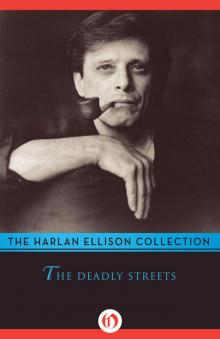 The Deadly Streets
The Deadly Streets The Glass Teat
The Glass Teat Paingod and Other Delusions
Paingod and Other Delusions No Doors No Windows
No Doors No Windows Strange Wine
Strange Wine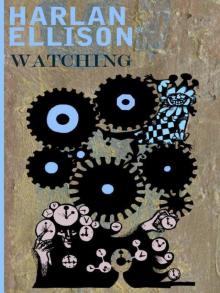 Harlan Ellison's Watching
Harlan Ellison's Watching Over the Edge/An Edge in My Voice
Over the Edge/An Edge in My Voice Troublemakers: Stories by Harlan Ellison
Troublemakers: Stories by Harlan Ellison Gentleman Junkie and Other Stories of the Hung-Up Generation
Gentleman Junkie and Other Stories of the Hung-Up Generation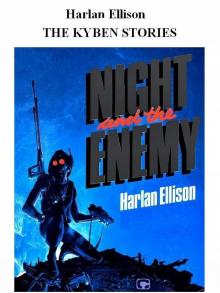 The Kyben Stories
The Kyben Stories From the Land of Fear
From the Land of Fear The Top of the Volcano: The Award-Winning Stories of Harlan Ellison
The Top of the Volcano: The Award-Winning Stories of Harlan Ellison Sleepless Nights in the Procrustean Bed
Sleepless Nights in the Procrustean Bed Ellison Wonderland
Ellison Wonderland Children of the Streets
Children of the Streets Can & Can'tankerous
Can & Can'tankerous Love Ain't Nothing but Sex Misspelled
Love Ain't Nothing but Sex Misspelled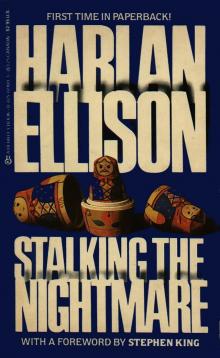 Stalking the Nightmare
Stalking the Nightmare Approaching Oblivion
Approaching Oblivion Deathbird Stories
Deathbird Stories Partners in Wonder
Partners in Wonder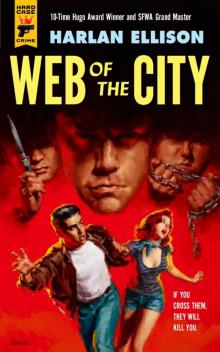 Web of the City
Web of the City Spider Kiss
Spider Kiss A Boy and His Dog
A Boy and His Dog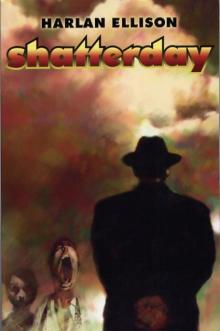 Shatterday
Shatterday Slippage: Previously Uncollected, Precariously Poised Stories
Slippage: Previously Uncollected, Precariously Poised Stories Repent, Harlequin! Said the Ticktockman
Repent, Harlequin! Said the Ticktockman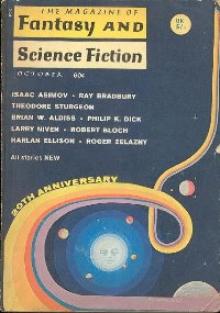 Come to Me Not in Winter's White
Come to Me Not in Winter's White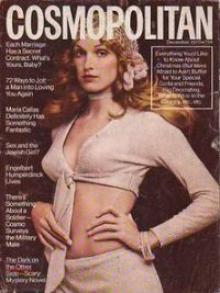 The Song the Zombie Sang
The Song the Zombie Sang The Other Glass Teat
The Other Glass Teat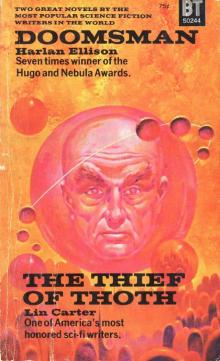 Doomsman - the Theif of Thoth
Doomsman - the Theif of Thoth The City on the Edge of Forever
The City on the Edge of Forever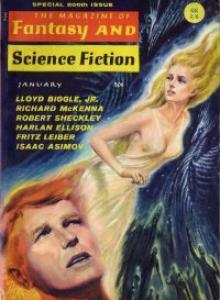 I See a Man Sitting on a Chair, and the Chair Is Biting His Leg
I See a Man Sitting on a Chair, and the Chair Is Biting His Leg The Harlan Ellison Hornbook
The Harlan Ellison Hornbook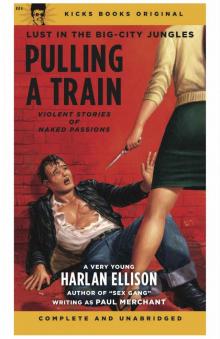 Pulling A Train
Pulling A Train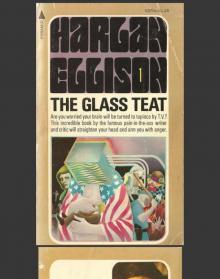 The Glass Teat - essays of opinion on the subject of television
The Glass Teat - essays of opinion on the subject of television An Edge in My Voice
An Edge in My Voice Angry Candy
Angry Candy Troublemakers
Troublemakers The Top of the Volcano
The Top of the Volcano Over the Edge
Over the Edge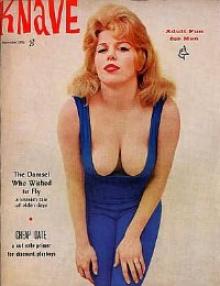 Survivor #1
Survivor #1 Slippage
Slippage